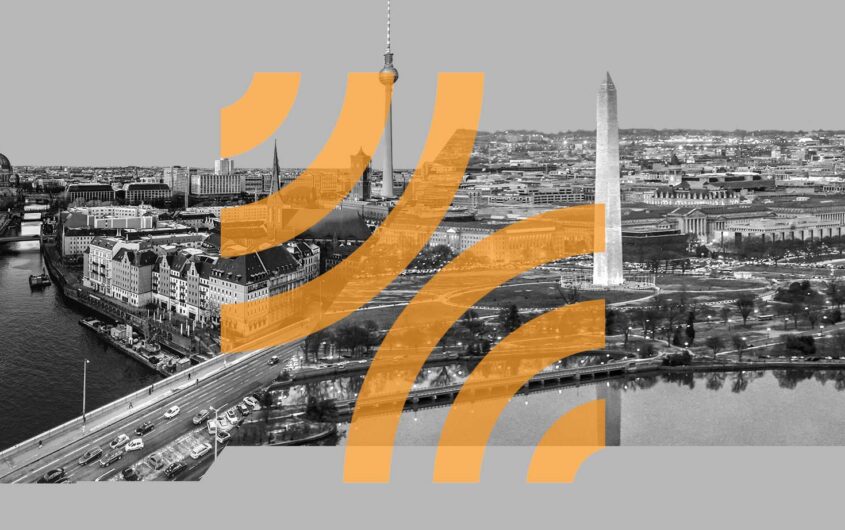AGI News
Andreas Freytag, DAAD/AGI Research Fellow


Andreas Freytag
Friedrich-Schiller-University Jena
Dr. Andreas Freytag is Professor of Economics at the Friedrich-Schiller-University Jena, Honorary Professor at the University of Stellenbosch, and Visiting Professor at the Institute of International Trade, University of Adelaide. He is also Director of G20 Trade and Investment Research Network. He is a DAAD/AGI Research Fellow in October and November 2023.
Dr. Freytag obtained his diploma from the University of Kiel and his doctorate as well as his Habilitation from the University of Cologne. He has published a number of books and articles in first-class peer-reviewed journals on economic policy, international trade policy, development economics, and international policy coordination. He contributes to blogs and for over ten years had a weekly column on wiwo-online, a German magazine.
During his time at the AGI, Andreas Freytag will focus on the substance and path of tightened transatlantic relations against the background of the systemic competition between the West and autocratic states. The latter comprise some emerging economies, including Russia and China. This escalation has geo-political and geo-economic consequences and makes it necessary to strengthen the ties between transatlantic partners as well as to reach out jointly to attract third countries to the Western values.
To maintain Western leadership in standard-setting as well as helping developing countries to enforce universal human rights and environmental standards, there needs to be a coordinated and broad-based strategy to (1) react to Chinese et al. attempts to define and set standards, which become binding for third countries’ companies. Similarly, (2) due diligence legislation may also be more effective if coordinated across the Atlantic. Although not in the center of analysis, another (3) aspect deals with the transatlantic trade relations as such, which are also in need of a revitalization.
This project focuses on the geo-economic aspects of systems competition although it is difficult to disentangle economic and political relations. It analyzes ways to intensify the transatlantic relations with the objective to maintain economic welfare as well as to position the Western partners better to counter autocracies’ attempts to gain influence in the world economy.
AGI is pleased to welcome Dr. Andreas Freytag as a DAAD/AGI Research Fellow in October and November 2023.
Dr. Andreas Freytag is Professor of Economics at the Friedrich-Schiller-University Jena, Honorary Professor at the University of Stellenbosch, and Visiting Professor at the Institute of International Trade, University of Adelaide. He is also Director of G20 Trade and Investment Research Network.
Dr. Freytag obtained his diploma from the University of Kiel and his doctorate as well as his Habilitation from the University of Cologne. He has published a number of books and articles in first-class peer-reviewed journals on economic policy, international trade policy, development economics, and international policy coordination. He contributes to blogs and for over ten years had a weekly column on wiwo-online, a German magazine.
During his time at the AGI, Andreas Freytag will focus on the substance and path of tightened transatlantic relations against the background of the systemic competition between the West and autocratic states. The latter comprise some emerging economies, including Russia and China. This escalation has geo-political and geo-economic consequences and makes it necessary to strengthen the ties between transatlantic partners as well as to reach out jointly to attract third countries to the Western values.
To maintain Western leadership in standard-setting as well as helping developing countries to enforce universal human rights and environmental standards, there needs to be a coordinated and broad-based strategy to (1) react to Chinese et al. attempts to define and set standards, which become binding for third countries’ companies. Similarly, (2) due diligence legislation may also be more effective if coordinated across the Atlantic. Although not in the center of analysis, another (3) aspect deals with the transatlantic trade relations as such, which are also in need of a revitalization.
This project focuses on the geo-economic aspects of systems competition although it is difficult to disentangle economic and political relations. It analyzes ways to intensify the transatlantic relations with the objective to maintain economic welfare as well as to position the Western partners better to counter autocracies’ attempts to gain influence in the world economy.








